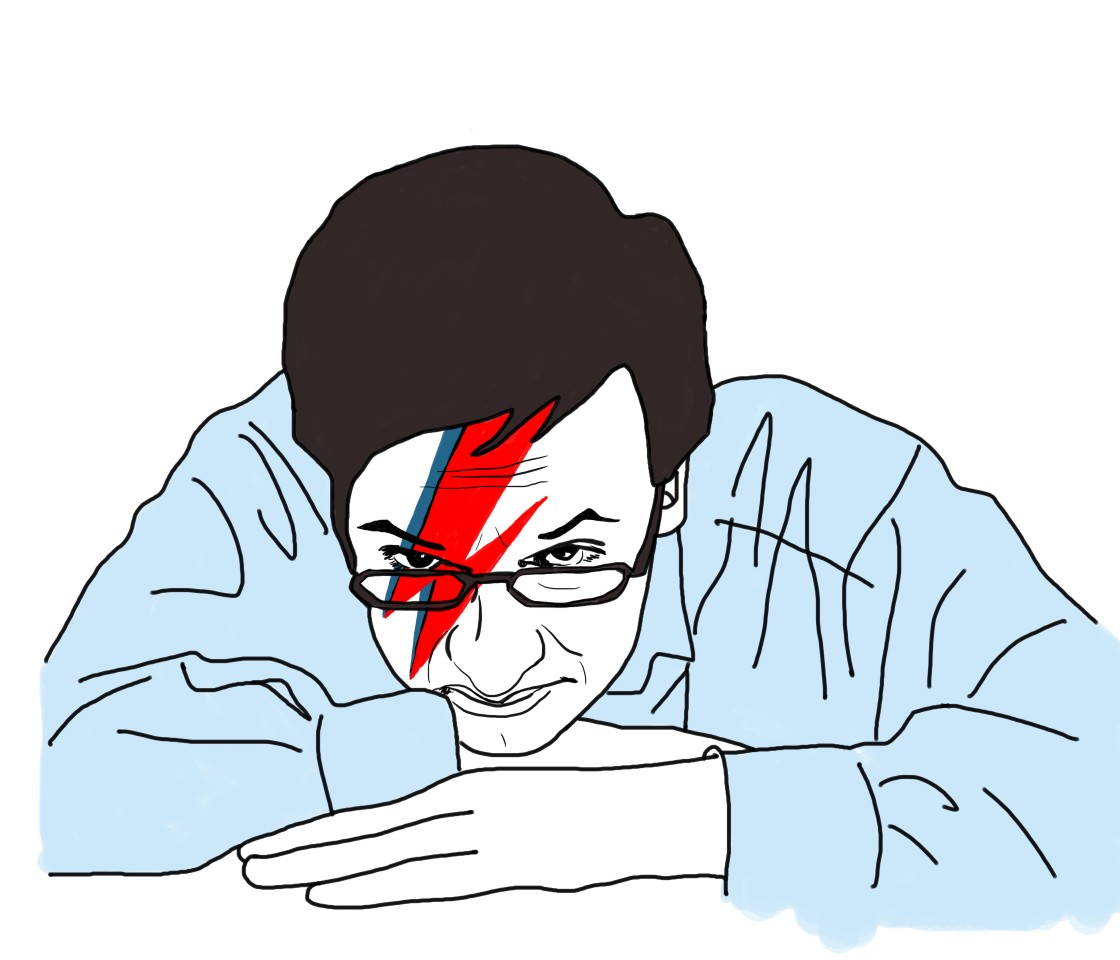
I bought my first Bowie album in 1979. I was standing in a record shop near London’s Marble Arch holding his newly released album Lodger and Led Zeppelin’s Physical Graffiti, trying to decide which would be the first non-Beatles album I would ever buy. I knew this was an epochal moment; much hinged on my decision. I was in London to meet relatives visiting from Malaysia at a time when all Malaysians visiting London would stay near Marble Arch. This is probably because it was near London’s only Malaysian restaurant (Rasa Sayang). So I was trying to decide which album to buy when suddenly a girl spoke to me and she said, “I love Led Zep.” This was a dream come true, a girl was talking to me, and I was absolutely terrified. I threw away the Led Zeppelin and ran to buy the David Bowie, which I listened to avidly all that summer as I recovered from my circumcision. And so began my enduring love for David Bowie.
Having been a fan of David Bowie since the age of 13 I was devastated by the news of his death in January. But I felt devastated in an uplifted kind of way because his music and art have played such an important role in lives of millions around the world. Tributes have been written of how his ever ch-ch-changing musical personas of Ziggy Stardust, Aladdin Sane or the Thin White Duke have inspired people to know that it’s OK to be different. In fact, it’s not just OK, David Bowie showed that it can be a winning formula, even if his non-conformity can be frightening for many. He certainly had an immense impact on my life but in all the outpouring of tributes I have not seen any mention of the role that I have played in his legacy. It’s time the world knew about my part in David Bowie’s fame.
For all his flamboyance and exuberant artistry, David Bowie was a very private man and his fans knew little about his home life. Did he like to watch TV while eating his dinner? Did he dress up as Ziggy Stardust when doing the housework? He never told us. But in the 1990s he allowed Architectural Digest magazine to photograph his Indonesian-style home on the Caribbean island of Mustique. It was a beautiful home (he sold it in 1995) and I scanned the photos intently. I have bought all of Bowie’s albums on vinyl and CD and although I never paid to see him perform live, I did pay money to see him act in several of his movies. My financial outlay has not been much but it does amount to something and I wanted to see how David Bowie had spent my money. And there, sitting on a plush sofa was a cushion. I paid for that cushion, that is my contribution to the David Bowie legacy (before he sold it and the house in 1995).
True aficionados of the David Bowie catalogue know that he did his best work in the 1970s between the albums Hunky Dory (1971) and Scary Monsters (1980), all before he bought his Mustique dream-home and my cushion. But after all his remarkable achievements in the 1970s, he fully deserved the right to relax on my cushion. There were some career highlights in these later years and I think it’s almost certain (and so-called “science” can’t prove otherwise) that it was while reclining on my cushion that Bowie perfected his role as Jareth the Goblin King in the 1986 movie Labyrinth, where he decided to finally terminate the failed musical experiment of Tin Machine, as well as enjoy stunning Caribbean sunsets in the company of his supermodel wife Iman and his Mustique neighbour Mick Jagger, all of whom, I am certain, commented on the exceptional comfort of my cushion. That cushion is my material contribution to the David Bowie legacy but the parallels in our lives don’t end there.
First of all, I grew up in England in the town where David Bowie’s parents met. If that’s not enough, then later I moved to Brixton in London and lived just two streets away from his childhood home but he really came of age in Bromley, which I used to drive through a lot! Furthermore, I had an amazing time when I visited Berlin and listened on my iPod to his album Heroes, which he recorded there in 1977. I think you’ll agree from the evidence I have shown that the connections between David Bowie and me are too strong to be ignored. Well, maybe not so much. But unbeknownst to him, he has played an enormous role in the lives of millions, for all of whom he is the hero, forever and ever.
Kam Roslan is the author of Confessions of an Old Boy: The Dato' Hamid Adventures. He is also a columnist, and a writer and director working in the film, TV and theatre in Malaysia. He will one day make his own feature film.





